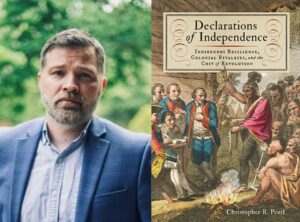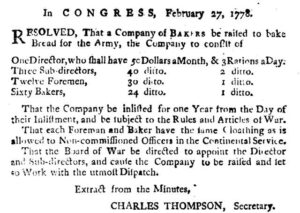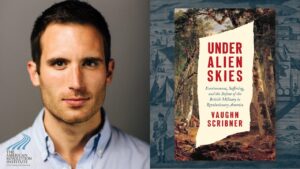Events

December 2024
Author's Talk—Declarations of Independence: Indigenous Resilience, Colonial Rivalries, and the Cost of Revolution
On July 4, 1776, two hundred miles northwest of Philadelphia, on Indigenous land along the west branch of the Susquehanna River, a group of colonial squatters declared their independence. They were not alone in their efforts. This bold symbolic gesture was just a small part of a much broader and longer struggle in the Northern Susquehanna River Valley, where diverse peoples, especially Indigenous nations, fought tenaciously to safeguard their lands, sovereignty and survival. Drawing from his new book, Christopher Pearl,…
Find out more »Virtual Lecture—Transatlantic Abolitionism in the Age of Revolution
Throughout his life, the marquis de Lafayette fought vehemently for personal freedoms. He advocated for women’s rights in America and civil rights for Protestants in France, and promoted respect for the identity and sovereignty of American Indians. His most extensive efforts in support of human liberty were his work to end slavery and the African slave trade. While Lafayette respectfully nudged his slave-owning friends to embrace emancipation, he became increasingly disturbed by the contradiction of the American republic, a beacon…
Find out more »Lecture—Unlikely Soldiers: The Bakers of Washington’s Army, 1778-1781
In May 1777, Congress commissioned Christopher Ludwick, a Philadelphia gingerbread baker, Superintendent of Bakers in the Continental Army. Upon receiving his commission, Ludwick quickly developed a Baking Department—the first of its kind in America—to feed Gen. George Washington’s army as they fought and retreated throughout the Mid-Atlantic. Under Ludwick’s supervision, a series of ovens were built in different locations throughout the Mid-Atlantic to satisfy the needs of provisioning the army. Justin Cherry, resident baker at George Washington’s Mount Vernon and…
Find out more »January 2025
Author’s Talk—Under Alien Skies: Environment, Suffering, and the Defeat of the British Military in Revolutionary America
The Revolutionary War is often celebrated as marking the birth of American republicanism, liberty and representative democracy. Yet for the tens of thousands of British and Hessian troops sent three thousand miles across the Atlantic Ocean to wage war under alien skies, such a progressive picture could not have been further from the truth. Whether trudging through alligator-infested swamps, nursing a comrade back to health in a rain-sodden tent or digging trenches in a burned-out port city, most who fought…
Find out more »Author’s Talk—Don Troiani’s Black Soldiers in America’s Wars: 1754-1865
Historian John Rees discusses his recent collaboration with historical artist Don Troiani highlighting the participation of African American soldiers in America’s early wars that combines Troiani’s dramatic art with Rees’ heavily researched text. Drawing from his research and written contributions, along with Troiani’s battle paintings, figure studies, artifact collection and artist notes, Rees focuses on the Black soldiers who fought in the American Revolution to highlight the significance of this under-recognized aspect of the war. Registration is requested. To attend…
Find out more »



